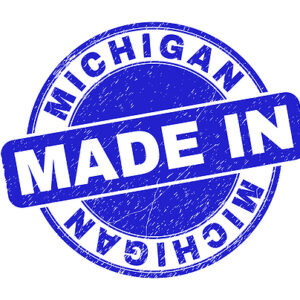With Michigan’s government lifting all COVID-19 orders on public gatherings and mask requirements, the state’s economy is ready to recover from government-mandated public health restrictions. It comes after Gov. Gretchen Whitmer unilaterally issued nearly 200 executive orders suspending, revising, and changing major public policy directly impacting the behaviors of the state’s 10 million citizens and businesses. However, that is just the beginning of the regulatory challenge for small-and-medium size business owners and entrepreneurs in Michigan planning on fully re-opening or initiating a new business venture.
Michigan is only one of eight states to report an economic decline above 5 percent in 2020. Moreover, the state’s economic output decreased by 5.4 percent, from $471.6 billion in 2019 to $446.2 billion in 2020. In addition, Michigan’s unemployment rate for May 2021 remained 27 percent higher than pre-pandemic February 2020, and total employment is down 5.6 percent in that same time period.
While there is evidence the Biden administration plans on increasing regulation and raising taxes on American businesses, it does not mean state and local governments are powerless to mitigate potentially negative federal regulatory barriers to state-level entrepreneurship and economic growth. And for Michigan, a recent study undertaken by Chris Edwards, director of tax policy studies at the libertarian Cato Institute, offers insights into what the state’s entrepreneurs are facing when it comes to overcoming state and local government regulatory barriers to starting a new business.
A useful result of this study is the Entrepreneur Regulatory Barriers Index, an empirical calculation based on 17 variables across four general categories of regulatory restrictions. The variables (converted to a normalized score using a formula) measure restrictions and costs imposed on new businesses in each state, while the four categories consist of small business views (three variables), occupational licensing (two variables), other entry barriers (five variables), and regulation-created costs (seven variables).
So how does Michigan compare to other states in this Index? Unfortunately, not well. Michigan ranks 36th among the 50 states, at the bottom of the third quartile. What stands out are the results of the first category – small business views of regulations. While Michigan government scores (on a choice scale ranging from “F to A+”) relatively high (“B”) among respondents on the variable “ease of starting a business”, the state has much room to improve when it comes to the other two variables, “labor and hiring laws” (“D+”) and “licensing laws” (“C-“). When it comes to the “other entry barriers” category, Michigan requires a “certificate of need” for the health care sector and is a liquor license quotas and alcohol control state. “Whatever happens in Washington, state and local governments can do much to improve the entrepreneurial climate by repealing low-value and harmful regulations,” says Cato’s Edwards.
A Michigan state government starting point could be analyzing state occupational licensing laws to assess which occupations need public regulation, and if so, what type (or “level”) of public regulation is necessary and effective. Such a regulatory review in licensing requirements could reduce the cost of entry (a “barrier to entry”) into a trade of profession, and potentially increase competition and lower consumer cost for the service.
A second initiative would be to consider establishing a state-level “regulatory sandbox.” In March 2021, Utah became the first state to pass bipartisan legislation creating an “all-inclusive”, or all industry, regulatory sandbox. A regulatory sandbox is a defined environment where innovative companies may safely experiment under the watch and guidance of regulatory agencies. By reducing the initial regulatory costs for entrepreneurial entrants, these fledgling firms have the opportunity to grow into competitors capable of managing normal compliance costs, at which point they “graduate” from the regulatory sandbox. Post-pandemic, this all-inclusive regulatory sandbox initiative would be a proposal worth seriously considering by the Michigan legislature.
In September 2020, the Yelp Economic Impact Report estimated that 60 percent of businesses closed due to COVID-19 state and local government regulatory requirements would be permanently shuttered. There is no evidence to believe that Michigan has not suffered similar business closure rates to the rest of the country. It is now time that the Michigan legislature and Governor Whitmer offer innovative bipartisan public policy initiatives to assist the state’s small-and-medium-sized enterprises and entrepreneurs who have been the most acutely impacted businesses by the effects of COVID-19. In the longer term, Michigan needs to develop its reputation as a destination state for entrepreneurs, and a more regulatory-friendly environment will go a long way to attaining this outcome.

